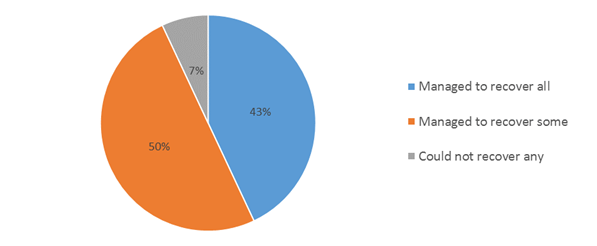Kaspersky Lab: Forever Lost - 57% of South Africans Could not Recover Money Stolen as a Result of Fraud
During the festive season, many people tended to buy more. This applies to online purchases just as much as in the shops, and while online shopping is becoming a popular means for purchasing goods, Kaspersky Lab reminds device users to make sure they always protect their transactions online. Unfortunately Internet shopping does not always end well for the buyers. A recent survey conducted by Kaspersky Lab and B2B International found that more than half of those respondents (in South Africa) who lost money in fraudulent online transactions did not get all – or sometimes any – of their funds back.
During the festive season, many people tended to buy more. This applies to online purchases just as much as in the shops, and while online shopping is becoming a popular means for purchasing goods, Kaspersky Lab reminds device users to make sure they always protect their transactions online. Unfortunately Internet shopping does not always end well for the buyers. A recent survey conducted by Kaspersky Lab and B2B International found that more than half of those respondents (in South Africa) who lost money in fraudulent online transactions did not get all – or sometimes any – of their funds back.
Although many financial institutions state a willingness to reimburse money lost due to cybercrime, only 43% of respondents reported that they could fully recoup their losses. 7% of victims received only partial compensation, and 50% could not recover any money at all. These losses can be significant: the average sum stolen by cybercriminals was $190 and 21% of respondents reported a loss in excess of $1,000.

The situation is exacerbated by the fact that not all users are fully aware of the danger of cyber fraud: 16% of respondents believe that online crimes involving stolen money are rare occurrences that will not happen to them. Only 25% fear that they can be a target of a cyberattack. However, statistics show that about 64% of users faced financial cyberthreats at least once during the previous year.
“Even if you are sure that the financial company or online store will refund any stolen money in the event of online fraud, you should still be cautious. You may indeed get all the money back – although the figures suggest this only happens about half the time – but the time and stress you will suffer are impossible to compensate. That’s why it’s important to pay special attention to the protection of confidential information, including your financial data. This can be achieved through the use of an effective security software solution,” said Elena Kharchenko, Head of Consumer Product Management, Kaspersky Lab.
For example, Kaspersky Internet Security – multi-device 2015 in addition to basic tools that combat cyber threats, integrates Safe Money technology for Windows OS. This technology was developed specifically to provide additional security for online transactions. When a user accesses a payment service or is about to make a purchase from an online store, Safe Money authenticates the website certificate against the cloud database and secures any information entered via virtual keyboard against possible interception by keyloggers.
Kaspersky Lab: Forever Lost - 57% of South Africans Could not Recover Money Stolen as a Result of Fraud
Kaspersky
Related Articles Product news
Kaspersky Safe Kids helps track missing teen!
Cyber predators, child trafficking, cyber bullies, children running away – the list of worst nightmare situations parents face is not easy to digest. In fact, it is estimated that a child goes missing every five hours in South Africa.Read More >All Covered: Managing Cybersecurity Risks with Next Generation Kaspersky Endpoint Security for Business
Enterprise-ready scalability, next generation technologies and EDR-integration in the new version of Kaspersky Lab’s flagship product for endpoints.Read More >New Kaspersky Cloud Sandbox Boosts Complex Threat Investigation and Response
With the largest data leaks in 2017 exploiting legitimate software flaws, the need for advanced detection technologies has never been greater.Read More >